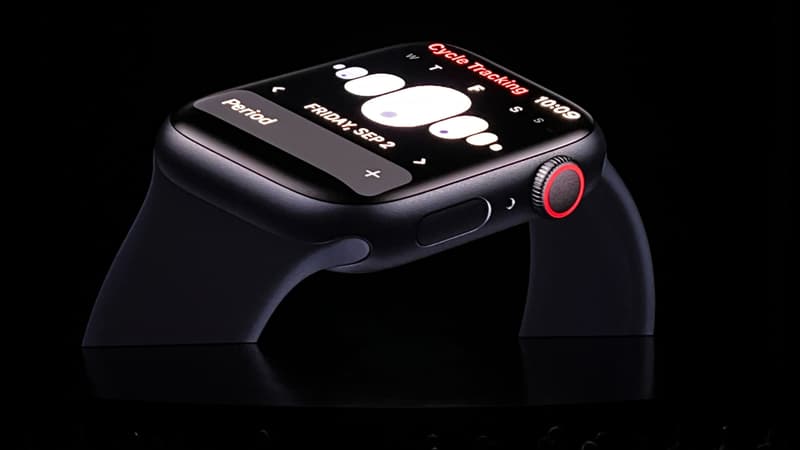On the occasion of its annual conference, on Wednesday, September 7, Apple presented the new ranges of its products: iPhone, AirPods and Apple Watch were the protagonists. Thus, the Apple Watch Series 8 has been presented, with several new features, always very focused on health, and in particular that of women.
To improve health monitoring, Apple’s connected watch now has two temperature sensors, one on the back of the watch and one below the screen. This new device records data every five seconds, to the nearest tenth, overnight.
Taking your temperature is one of the most accurate ways to determine an ovulation period: when the time comes, body temperature can vary by up to 0.5 degrees, hence the interest in systematically taking it at the same time every day. Thus, if our body is usually around 36.5°C, it will reach 37°C during an ovulation period.
Also detect diseases
Once enough information is collected, the Apple Watch will be able to provide retrospective data on the menstrual cycle and therefore on ovulation periods and more accurately predict the arrival of menstruation. Also, the watch will be able to detect irregularities, which are possible signs of illness. Notifications can be turned on to alert you to a change in cycle, irregular periods, or other signs of health problems.
These new features will be available with the new watchOS 9 operating system, which will be released on September 12.
Menstrual data is medical data and, in fact, sensitive. During the presentation of this new feature, Apple wanted to be reassuring by indicating that this data will only be accessible through the secret code or facial recognition, but also end-to-end encryption in the case of iCloud storage.
A parameter especially monitored in the United States, where the context of the right to abortion is very tense. Tech giants, holders of a large amount of personal and medical data, play a crucial role in the safety of the people involved. The social network Facebook, for example, gave the authorities private messages from a young woman who had an abortion.
Source: BFM TV


